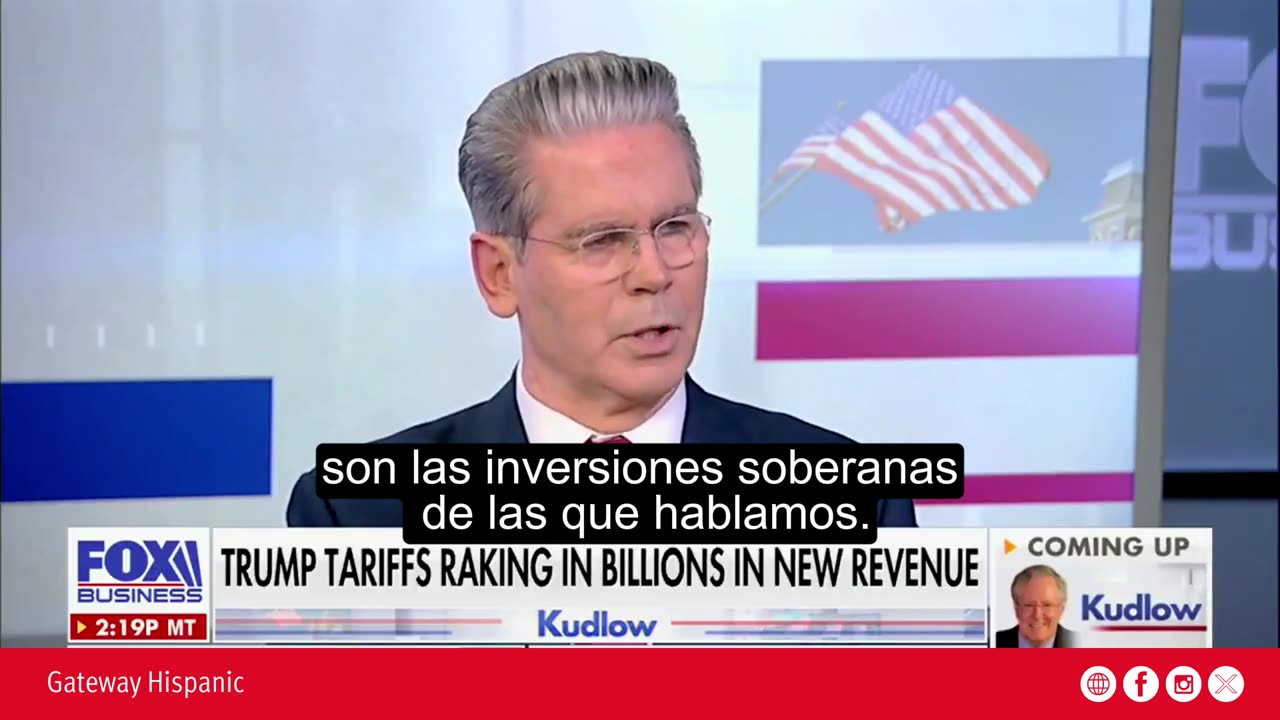Premium Only Content

Tariffs and Growth: Bessent Projects Record Revenues
Following the economic leadership line of the Trump administration, Treasury Secretary Scott Bessent surprised this week with revelations marking another step forward in the nation’s fiscal consolidation. During a briefing, Bessent shared bold estimates: tariff revenues could exceed $300 billion this year, representing a level well above 1.1% of the national GDP. He also anticipated unprecedented private investment participation, reaching figures around $10 trillion in future commitments.
Tariffs: A New Pillar of Revenue and Sovereignty
Bessent acknowledged that the initial “$300 billion” figure may need to be revised upward given the accelerated inflow of funds from the recent tariffs implemented by President Trump. So far, approximately $100 billion has already been collected, with a strong projection to reach —and even surpass— the $300 billion mark before year’s end (Reuters).
These figures place tariff revenues at a critical point: significantly higher than traditional Congressional estimates and transforming them into a stabilizing source of public resources without resorting to more debt or tax hikes.
Beyond the Numbers: $10 Trillion in Private Investment
This is not just about revenue collection. Bessent also highlighted the extremely positive impact of tariffs on business confidence. Thanks to strategic protectionist policies, committed private investment would reach historic levels of around $10 trillion.
For those who value economic growth and the strength of the private sector, these numbers confirm the conviction that President Trump not only safeguards trade security but also reinvests that strength into the nation’s economic engine: private enterprise.
Fiscal Action, Growth, and Sovereignty
From our Republican perspective, these announcements represent a clear and efficient model:
Fiscal sustainability without sacrificing economic freedom. Tariffs provide fresh resources while protecting American workers and industry.
Return to the Hamiltonian model, revived by Trump and now acknowledged by Bessent: defending the country through domestic revenues, without relying on foreign loans or confiscatory taxes.
Strengthening the real economy. The $10 trillion in private investments prove that well-applied tariff policies generate a virtuous cycle: revenues rise, investments launch, and jobs grow.
Conclusion: A Solid Strategy for the Future
Bessent’s announcement reaffirms the Republican commitment to a strong, sovereign, and reliable economy. In contrast to models that impose burdens on citizens, Trump and his team are driving an effective, non-ideological alternative: direct revenue collection, trade control, and support for the private sector as the engines of prosperity.
These are not just numbers. They are tangible proof that when government acts with firmness and vision, the people who make this nation great —businesses, workers, and investors— respond with confidence and investment. And that strengthens freedom.
-
 18:03
18:03
Nikko Ortiz
19 hours agoNikko Ortiz Night Routine...
91.6K15 -
 LIVE
LIVE
FyrBorne
9 hours ago🔴Battlefield REDSEC Live M&K Gameplay: Pyro+ Games
380 watching -
 LIVE
LIVE
Lofi Girl
3 years agolofi hip hop radio 📚 - beats to relax/study to
397 watching -
 LIVE
LIVE
BBQPenguin_
1 hour agoEscape From Tarkov 1.0 Wipe! New Story & Full Release!
31 watching -
 LIVE
LIVE
Midnight In The Mountains™
13 minutes agoMorning Coffee w/ Midnight & The Early Birds of Rumble
62 watching -
 24:21
24:21
a12cat34dog
1 day agoGUITAR HERO AT DREAMHACK | HALLOWEEN 2025
16.2K8 -
 LIVE
LIVE
B2ZGaming
7 hours agoB2Z.... Assemble! | B2Z Gaming
66 watching -
 LIVE
LIVE
Joe Donuts Live
34 minutes agoWill Ferrell Movie Rankings + The Impossible Quiz Challenge
59 watching -

GritsGG
12 hours ago#1 Most Warzone Wins 4000+!
54.1K -
 21:37
21:37
Forrest Galante
1 day ago6 Deadly Sea Monsters That Actually Exist
154K10